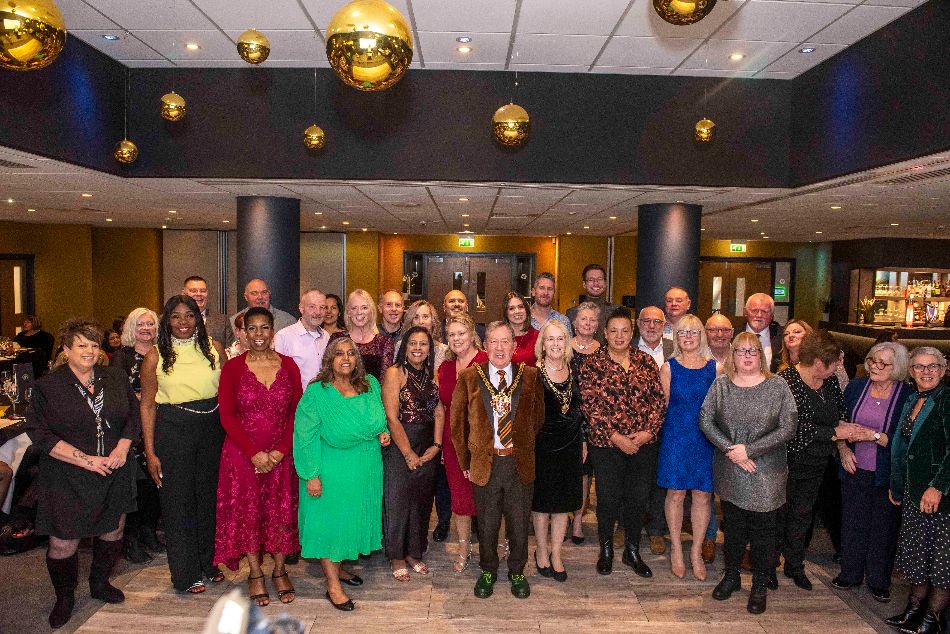Work to breathe new life into one of Walsall’s most historic and ornate buildings is set to go ahead thanks to an investment of more than £582,000 from the West Midlands Combined Authority (WMCA).
Globe House, a Grade II listed building in Bradford Place, will now be converted into 35 apartments for rent by Globe Asset Management Ltd (GAM), a Walsall-based company which holds, manages and develops residential and commercial property across the Black Country and Birmingham. At least 20% of the new apartments will be classed as affordable under the WMCA's own, more stringent definition, which is linked to real world local incomes rather than surrounding property prices.
Located in Walsall’s Bridge Street Conservation Area, Globe House was constructed in 1888 to mark the previous year's Golden Jubilee of Queen Victoria. It was used as a college for more than a century and later converted into offices but much of the building is now unoccupied.
Andy Street, Mayor of the West Midlands and chair of the WMCA, said: “Our investment into Globe House will help transform an underused building and bring much-needed homes into the very heart of the community.
“It’s also wonderful to see another heritage building preserved for future generations to enjoy and follows the investment made by the WMCA into the regeneration of the Citadel Building in Birmingham city centre. Across the West Midlands, with the public, private and third sector working together in partnership, we are continuing to unlock the potential of previously neglected locations to help supercharge our regional development - creating jobs and homes for local residents while protecting the green belt.”
The Globe House conversion has seen the WMCA work in close partnership with Walsall Council and the former Black Country LEP which also invested in the scheme. Its facade and historical features will be mostly unaltered by the conversion, retaining its character.
The investment is part of the WMCA’s policy of encouraging more town centre living and is the latest in a series of WMCA housing and land projects to provide new homes, jobs and commercial spaces on urban, brownfield sites. Director of GAM, Rajinder Gill, said: “We at Globe, the current custodian of Globe House, are grateful for the support for this project from Walsall Council and its officers who have worked on this historical project over the last few years.
“We also give thanks to our team, Rob Cysondor from RCA Regeneration and John Mason Architects, and of course Andy Street who has supported this Walsall project from the start.” Councillor Ian Courts, WMCA portfolio holder for housing and land and leader of Solihull Council, said: “It’s heartening to see how we are using the money secured from Government to deliver much needed, affordable homes in the heart of our town centres but doing it in a way that is also safeguarding our local heritage.
“These investments are helping to drive our economic recovery, create market confidence and provide homes in places where people want to live. I’m sure this latest project will not only preserve and revitalise Globe House, with its strong architectural and historical significance, but also the surrounding area.”
Portfolio Holder for Regeneration at Walsall Council, Cllr. Adrian Andrew, said: “I am delighted that WMCA is investing in Globe House to breathe new life into the iconic building. It’s another piece of the jigsaw of investment and transformation across the borough.
“The conversion of the building will enable us to retain some of its heritage whilst bringing it back into sustainable use that will benefit the community. This is one of many exciting developments for the borough that will see improved quality of life and increased opportunities for Walsall people over the coming years.
“Affordable housing is high priority for the regeneration of Walsall, so this is excellent news.” The apartments at Globe House are the latest of thousands of new homes to be built as a direct result of a ‘brownfield first’ approach by the WMCA which has invested hundreds of millions of pounds to unlock and accelerate the regeneration of underused urban buildings and derelict industrial sites for new homes, mixed use schemes and commercial premises.
Many of those sites had stood derelict for decades with developers reluctant to take them on because of the high costs associated with cleaning up the land and providing the essential infrastructure for development to take place. The WMCA’s investments have often proved the last piece of the jigsaw in getting developments to happen.
In return, developers must make a minimum 20% of the new homes affordable using the WMCA's own regional definition and show strong commitments to net zero and modern methods of construction. This pipeline of investment has helped the West Midlands earn a reputation as a national leader in brownfield regeneration and housing delivery, using the £700m it has secured from Government since 2018 to unlock wider benefits and outcomes for the whole West Midlands.
The region’s Deeper Devolution Deal in March this year also secured up to a further £500 million to support housing and regeneration projects across the region. The investment, together with unique powers, offers greater flexibility to drive the on-going transformation of derelict industrial land for new homes and jobs.
The new powers will also see a dramatic shift in decision making, with strategic control over future development sitting with the West Midlands rather than Whitehall.











